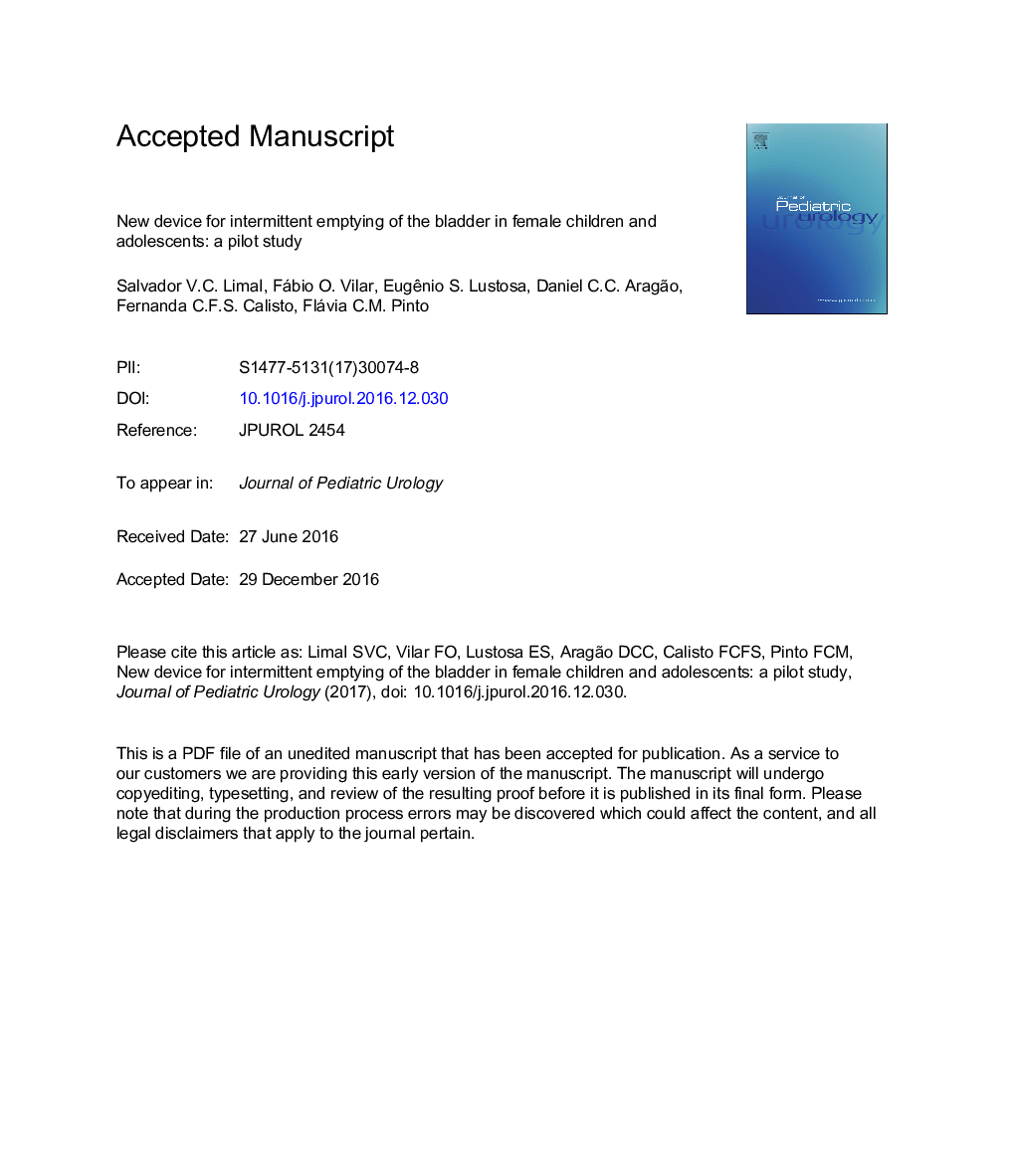| Article ID | Journal | Published Year | Pages | File Type |
|---|---|---|---|---|
| 8811893 | Journal of Pediatric Urology | 2017 | 17 Pages |
Abstract
This new bladder-draining device (ISRD) was effective and secure in terms of insertion technique, and improved QoL of patients with urinary retention and incontinence, according to domains evaluated in the KHQ.Table. Results summaryClinical symptomsClinical indexes (%)Quality of life (KHQ score)KHQ domainsChildren (n = 13)Adolescents (n = 12)Children (n = 13)Adolescents (n = 12)BeforeAfterBeforeAfterBeforeAfterBeforeAfterFrequency43.310.043.33.370.012.577.515.0General health perceptionNocturia50.013.366.710.090.036.793.336.7Incontinence impactUrgency33.36.756.73.393.326.7100.020.0Role limitationsIncontinence during sexual intercoursea__58.34.2100.010.0100.020.0Physical and social limitationsRecurrent urinary tract infections66.716.766.76.790.056.773.333.3Personal relationship_____66.710.0100.053.3Emotions_____100.043.3100.036.7Sleep/energy_______100.033.3Severity measuresaThis applied to only two cases (N = 5).
Related Topics
Health Sciences
Medicine and Dentistry
Perinatology, Pediatrics and Child Health
Authors
Salvador V.C. Lima, Fábio O. Vilar, Eugênio S. Lustosa, Daniel C.C. Aragão, Fernanda C.F.S. Calisto, Flávia C.M. Pinto,
